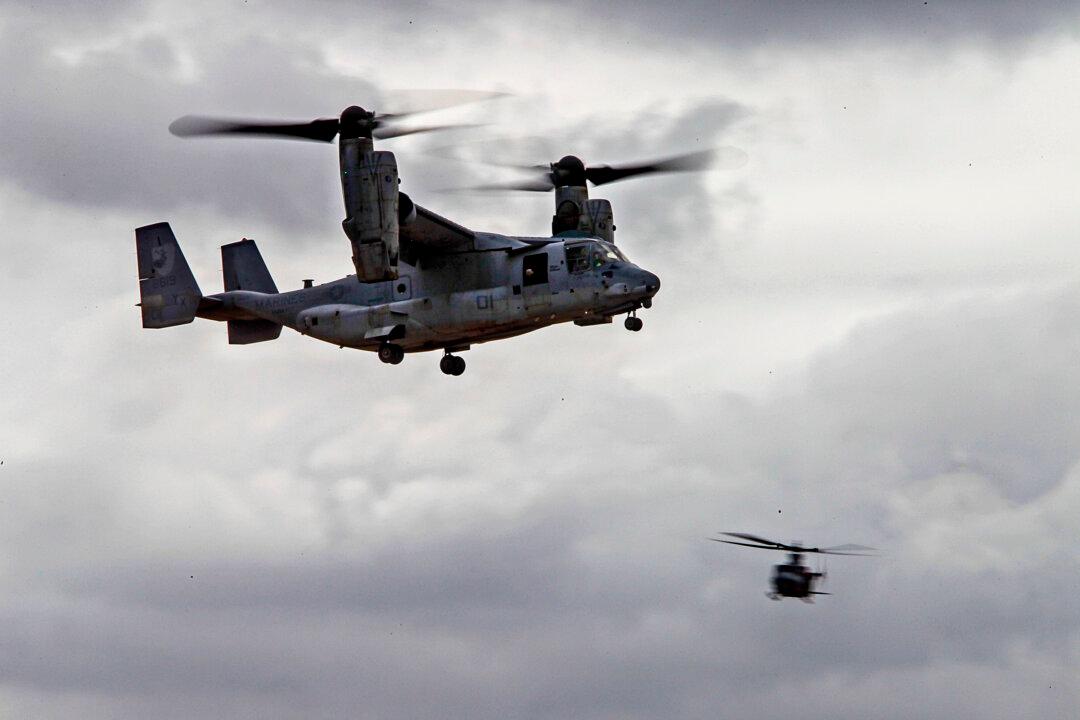The U.S. military is grounding the United States’ entire fleet of CV-22 Osprey aircraft following last week’s deadly U.S. Air Force crash off the coast of Japan’s Yakushima Island that left eight airmen dead.
All variants of the Osprey flown by the Marine Corps, Air Force, and Navy are being grounded as part of an operational standdown.





